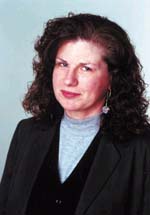 Diminished by Supreme Court Implications for People with HIV/AIDS or Other Disabilities Oil Moguls Get Cover for Bias in Name of Business Necessity |
|
Compiled by GayToday Lambda Legal
However, acknowledging the existence of expert testimony refuting Chevron's position, the decision leaves for the trial court the issue of central importance to Mr. Echazabal whether he is qualified to perform the job. Mario Echazabal worked for various contractors at Chevron's oil refinery in El Segundo, California from 1972 until 1996. In 1995, when Echazabal sought to work directly for Chevron, he received a job offer that later was withdrawn when a pre-employment medical test revealed a liver abnormality. Chevron's reflexive reaction to Echazabal's condition, which later was diagnosed as chronic hepatitis C, was very suspicious. The evidence showed that any chemicals hazardous to Echazabal would be dangerous for other workers. Expert investigation revealed nothing related to the refinery job that would endanger Echazabal. And Echazabal had worked for years doing the type of work involved without any negative impact on his health. Chevron also argued in court that allowing Echazabal to become an employee would increase the cost of workers compensation benefits and undermine employee morale.
"This is the kind of discrimination that people with HIV encounter all the time exclusion from employment supposedly 'for their own good,'" Hanssens said. "It's a sad day when the Supreme Court provides employers further cover for discrimination in the name of 'business necessity,' but we hope and expect that the court will give the same expansive treatment to other parts of the ADA regulations that federal courts now ignore in excluding people with HIV and mental health disabilitites from their chosen professions." |



